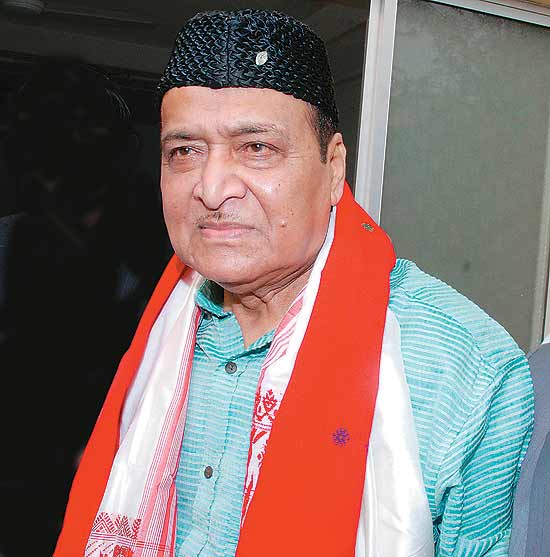By Milind Dharmasena
Introduction: The River and the Voice
On his 100th birth anniversary, Bhupen Hazarika remains more than just a musical legend—he is an institution, a cultural bridge, and a symbol of the human spirit. Known as the “Bard of the Brahmaputra,” his music flowed like the river itself: vast, deep, and timeless. Through his songs, films, and poetry, Hazarika preserved Assam’s folk traditions, gave India some of its most soulful melodies, and built an enduring global cultural legacy.
Early Life and Musical Roots
Bhupen Hazarika was born on September 8, 1926, in Sadiya, Assam, a region steeped in folklore and oral traditions. The rhythms of the Brahmaputra and the folk songs of Assam became his earliest teachers. At the age of 10, he was discovered by Assamese cultural icon Jyoti Prasad Agarwala, and soon after, he recorded his first song.
His academic journey took him to Banaras Hindu University, where he studied political science, and later to Columbia University in New York. There, he met African-American singer and activist Paul Robeson, whose philosophy of music as a force for social change deeply influenced him. Hazarika would later adapt Robeson’s iconic “We Are in the Same Boat, Brother” into his Assamese masterpiece Bistirno Parore.
Bhupen Hazarika’s Cultural Contributions to Indian Music
- Reviving and Modernising Folk Traditions
Hazarika’s most enduring gift was his ability to preserve Assamese folk music while making it accessible to modern listeners. By blending folk rhythms with contemporary arrangements, he brought the rich traditions of Assam to national and international stages. His songs became cultural time capsules, capturing the voices of boatmen, farmers, and ordinary people.
- Bridging Regional and National Identities
While deeply rooted in Assamese culture, Hazarika composed and sang in Hindi, Bengali, Assamese, and other languages. His songs like Dil Hoom Hoom Kare (featured in the film Rudaali) gave him pan-Indian recognition, while his Bengali compositions brought him close to audiences in West Bengal. Through this multilingual artistry, he became a symbol of India’s unity in diversity.
- Music as a Tool for Social Justice
Hazarika’s music was never just about melody—it carried messages of justice, equality, and humanity. His songs often reflected the struggles of marginalized communities, the plight of workers, and the aspirations of ordinary people. At a time when India was grappling with social change, his lyrics gave hope and strength to millions.
- Contributions to Indian Cinema
As a filmmaker and composer, Hazarika created films that were not only entertaining but also socially conscious. His Assamese films such as Shakuntala, Pratidhwani, and Chikmik Bijuli blended music, storytelling, and reformist ideas. Later, his work in Hindi films, particularly in Rudaali (1993) and Daman (2001), left an indelible mark on Indian cinema.
- Global Cultural Ambassador
Bhupen Hazarika’s exposure to world music and activism helped him present Indian folk traditions on international platforms. His time in the U.S. with Paul Robeson shaped his worldview, and he infused Assamese and Indian folk with universal humanist ideals. This made his music resonate with audiences across South Asia and beyond.
Awards and Recognitions
Hazarika’s contributions earned him India’s highest civilian honours, including the Bharat Ratna (posthumously in 2019), the Padma Bhushan, and the Dadasaheb Phalke Award for lifetime achievement in cinema. These accolades recognised not just his artistry but his role as a cultural guardian and humanitarian.
Legacy: The Eternal Flow of His Music
A century after his birth, Bhupen Hazarika’s voice continues to flow like the Brahmaputra itself—ever-present, life-giving, and eternal. His music remains relevant in today’s world, reminding us of the power of art to unite, to heal, and to inspire.
For India, Hazarika is not merely a musician of the past, but a guide for the present and future. His vision of inclusivity, compassion, and cultural pride continues to resonate with new generations.
Conclusion: A Timeless Bard
As we mark Bhupen Hazarika’s 100th birth anniversary, we celebrate not just a man but a movement. He gave India its cultural anthem of humanity, rooted in the soil of Assam yet echoing across the world. His centenary is not just a remembrance—it is a call to carry forward his message of love, equality, and unity through art.




